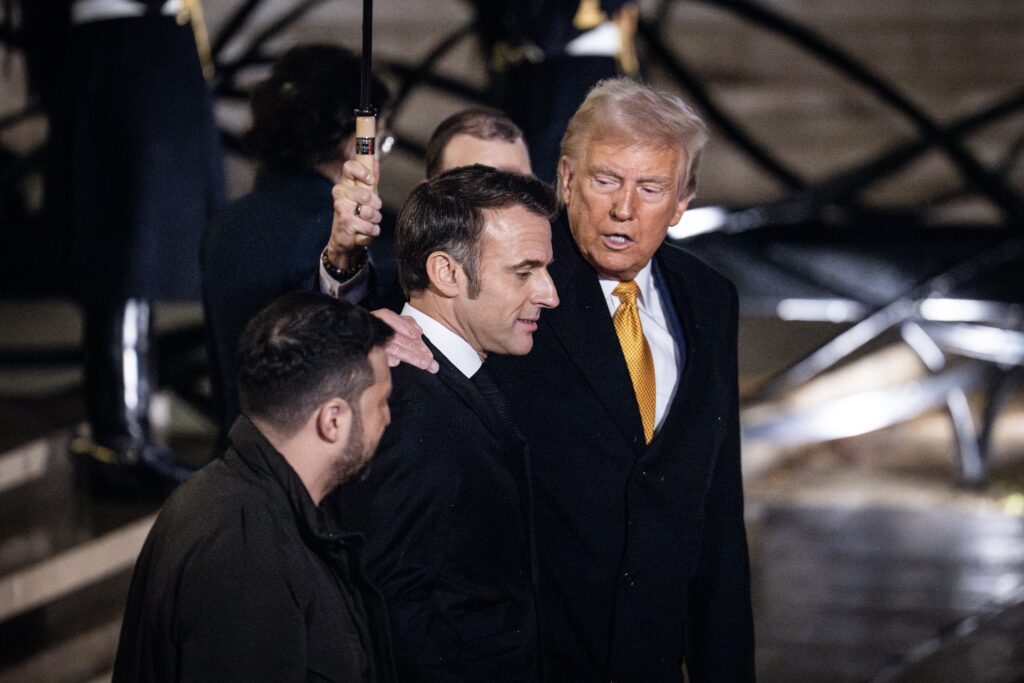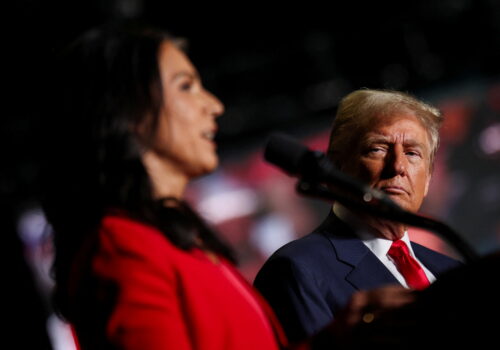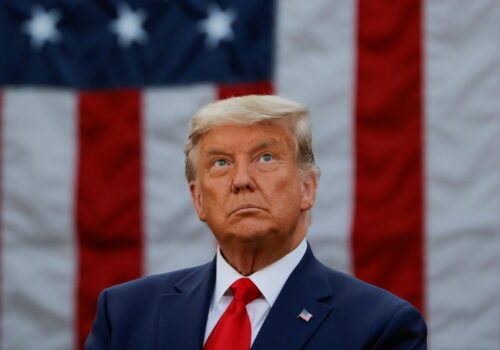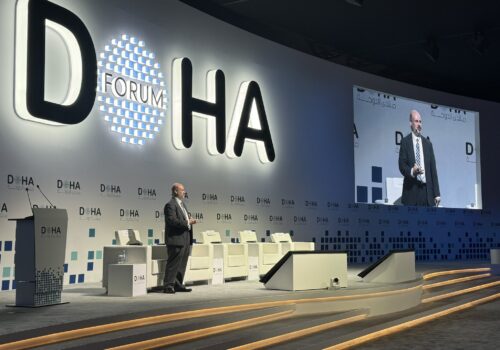Four stories in Friday’s newspapers capture an emerging reality: President-elect Donald Trump is emerging as one of the most determined and publicly active incoming commanders-in-chief ever, even compared with his first term in office. So it’s worth tracking the global “Trump effect” as he articulates his goals and the world responds to them.
This first installment of the tracker involves China, Iran, Ukraine, and NATO. Positive changes in any of those realms would be welcome, as they are all at the center of the struggle over what set of principles and actors will shape the global future.
Let’s start with China. Trump has invited Chinese leader Xi Jinping to his inauguration next month—in an unprecedented gesture to an adversarial leader. The incoming White House press secretary, Karoline Leavitt, told Fox News on Thursday that Trump would personally engage with adversaries and allies, just as he did during his first term. “He is willing to talk to anyone, and he will always put America’s interests first,” she said.
On Iran, the Wall Street Journal reports that members of Trump’s transition team are putting the option to launch a military strike on the country’s three major nuclear facilities “under more serious review.” Israel has helped see to it that Iran is at its weakest point in three decades, with its proxies slammed and its air defenses down. The fall of Syria’s Bashar al-Assad this past week has only added to Tehran’s problems. A senior US official tells me that due to this weakness, the danger has increased that Iran may conclude it needs to break out to a nuclear weapons capability to restore some credibility, so the Trump team’s review makes sense.
On Ukraine, Trump signaled during his recent trip to France, where he met with Ukrainian President Volodymyr Zelenskyy and French President Emmanuel Macron, that he wants Europe to carry more weight in defending and supporting Ukraine. Officials briefed on the meeting made clear that while he’s no friend of Ukraine’s NATO membership aspirations, Trump does want the country to emerge from the war well-armed and strong.
On that score, it’s perhaps not surprising that NATO Secretary General Mark Rutte, the first European to visit the US president-elect at Mar-a-Lago after Trump’s election, wants Europeans at the Alliance’s summit in The Hague this coming summer to pony up more defense spending. As the Financial Times reports, confidential talks that began with foreign ministers in Brussels last week envisage a short-term pledge by members to spend 2.5 percent of gross domestic product (GDP) on defense, with the possibility of a 3 percent goal by 2030. Rutte wouldn’t discuss the specific numbers, but he agreed that it should be “much more” than the current goal of 2 percent of GDP, which twenty-three of the Alliance’s thirty-two members will hit this year.
Those who remember Trump’s first term will recall that he had a knack for capturing daily news cycles. Few, if any, presidents have done it so long before their inauguration. Inflection Points will track what impact the incoming president’s unique approach will produce over time. There is no doubt that China, Iran, Ukraine, and NATO are excellent places to start.
Frederick Kempe is president and chief executive officer of the Atlantic Council. You can follow him on X: @FredKempe.
This edition is part of Frederick Kempe’s Inflection Points newsletter, a column of dispatches from a world in transition. To receive this newsletter throughout the week, sign up here.
Further reading
Wed, Dec 11, 2024
Trump’s ‘deep state’ dilemma
Inflection Points Today By Frederick Kempe
In this more perilous world, the incoming president will need to lean on the proven patriots in intelligence whom he has disparaged in the past.
Thu, Dec 5, 2024
Trump’s Nobel Peace Prize opportunity in Ukraine
Inflection Points By Frederick Kempe
Stopping Russia’s aggression in Ukraine will be Trump 2.0’s first test and opportunity, one that will have far-reaching consequences.
Mon, Dec 9, 2024
Dispatch from Doha: Assad’s fall, Iran’s weakness, and the impact of unintended consequences
New Atlanticist By Jonathan Panikoff
In just six months, Iran has slid from a position of strength to perhaps the weakest it has been since 1979.
Image: From left to right, Volodimir Zelenski, Volodymyr Zelensky, president of Ukraine, Emmanuel Macron, president of the french republic, Donald Trump, president elect of the United States of America, at the end of the meeting between the President of France, the President-elect of the United States of America and the President of Ukraine, on the occasion of the reopening of the Cathedral of Notre Dame de Paris, at the Elysee Presidential Palace, in Paris, FRANCE, 07 December 2024.



